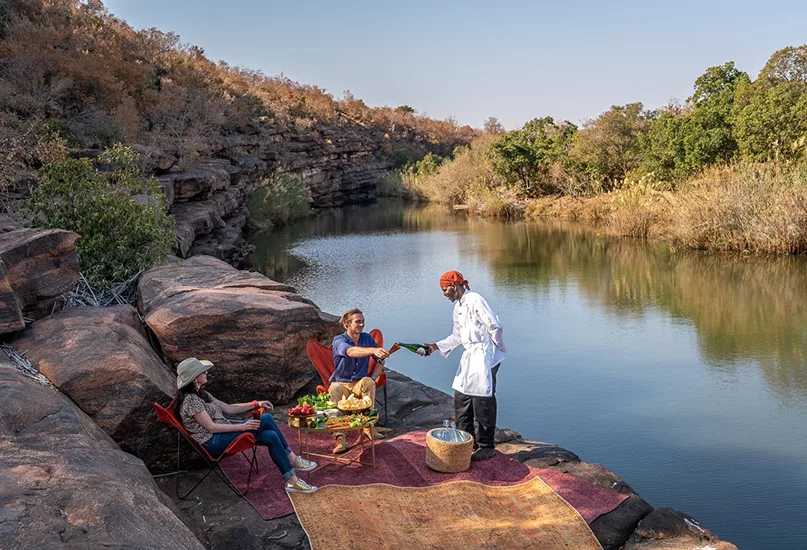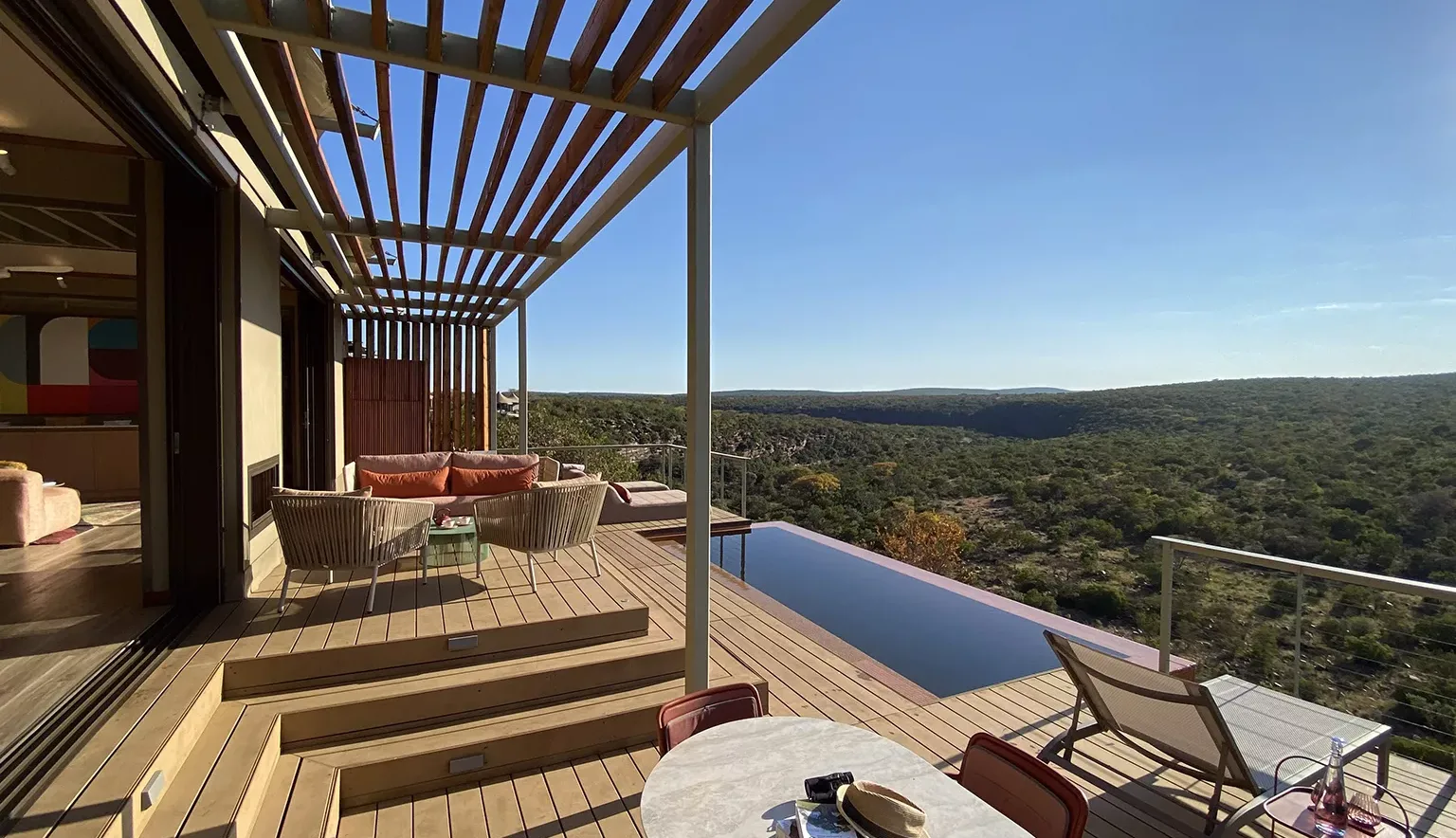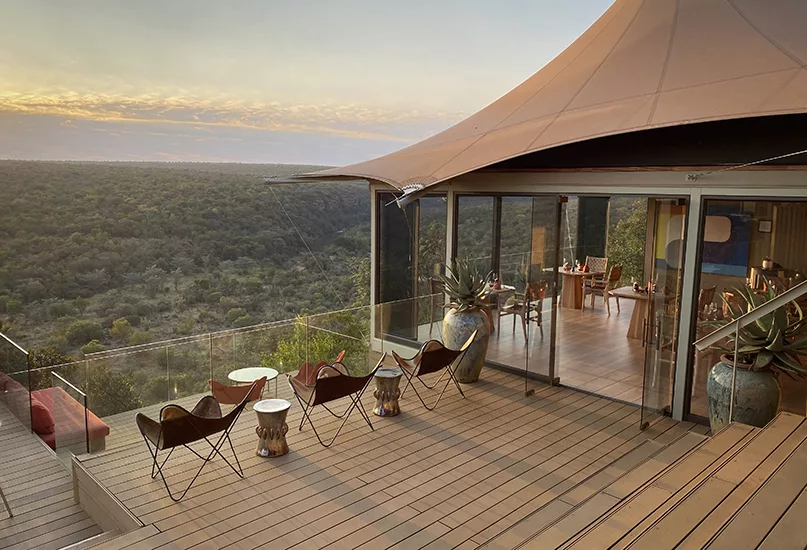
“Each villa combines modern amenities with an appreciation for its surroundings”
Kate Hughes, Operations Director, Lepogo Lodges
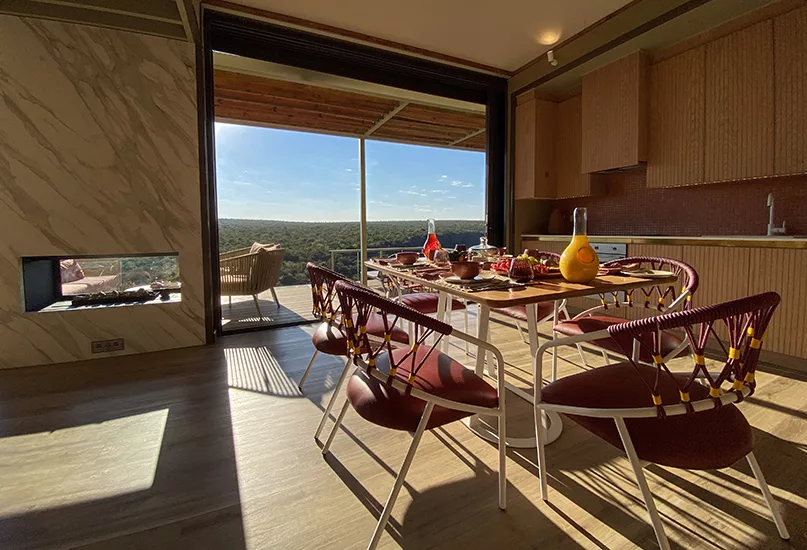
PERSONALISED LUXURY
Every stay with Lepogo Lodges is exclusive, as staff work tirelessly to personalise each guest’s experience, and features consistent luxury elements. The company prefers to curate each guest’s stay depending on their unique wishes, needs, experiences, and desires, which allows for a wide range of adventures in the pristine African wilderness.
“General highlights include daily game drives with expert guides, where guests have the chance to see the majestic and beautiful wildlife Africa has to offer, along with everything else that makes the Lapalala Wilderness so special,” explains Hughes.
Additional exclusive experiences at Lepogo Lodges include bush walks, water safaris, fishing, visiting the San Bushman paintings, sleeping out under the stars, in-villa spas, bush breakfasts, and sundowners. Family activities such as treasure hunts, pottery and jewellery making classes, treetop yoga sessions, and bush baking classes can also be enjoyed.
“For a truly private experience, Melote House, opening in January 2024, is set to be exclusively available as a private hire for between 12 and 16 guests,” she adds.
Melote House has been designed with a carbon-neutral approach, featuring impressive, rammed earth walls constructed from earth taken from the hillside it sits on. Built-in tiers maximise views over the Lapalala Wilderness, whilst the exclusive accommodation features multi-generational family living, with the main house sleeping 12 and an adjacent separate cottage sleeping four.
In line with Lepogo Lodges’ commitment to conservation, Melote House serves as an exclusive-use private sanctuary, seamlessly combining high-end luxury with a focus on sustainability and environmentally-friendly practices.
“The design and detail of the house is exquisite, and the interiors have been beautifully and carefully curated to tell the story of Melote in the Lapalala Wilderness,” Hughes clarifies.
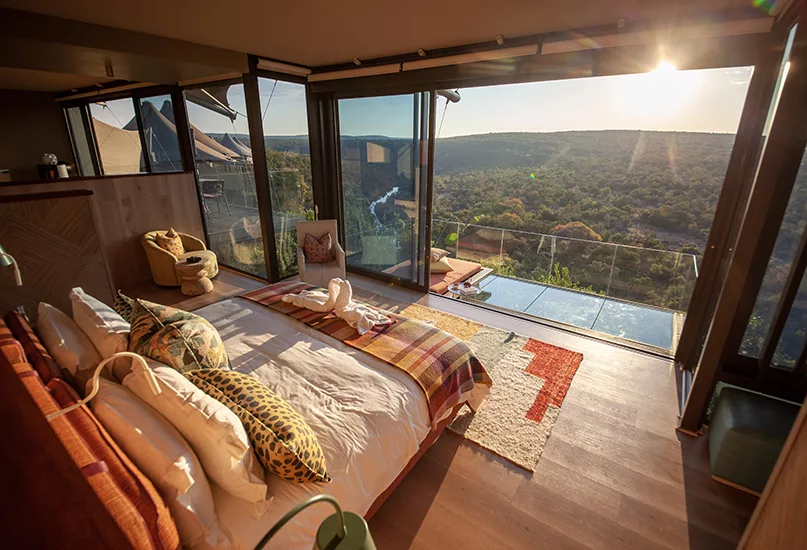
CONSCIOUS CONSERVATION
“By creating beautiful high-end lodges without taking any profit for ourselves, we can give more back to conservation for the future”
Kate Hughes, Operations Director, Lepogo Lodges
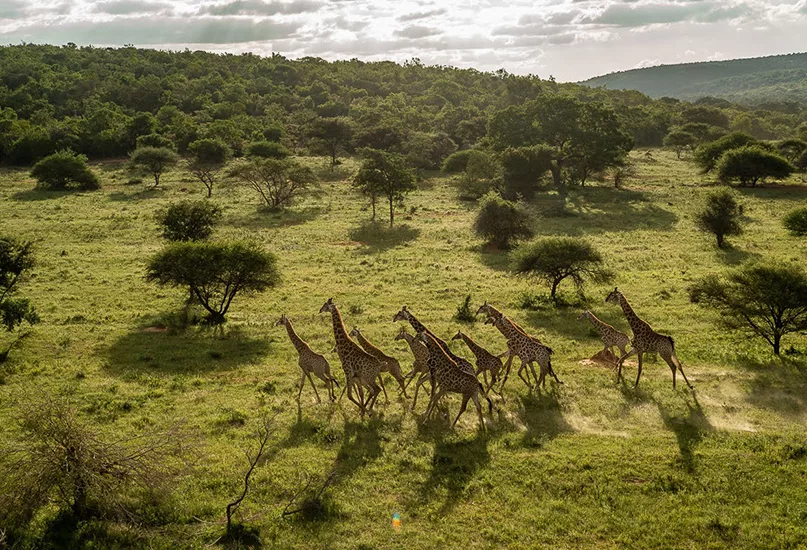
OFFSETTING EMISSIONS
Lepogo Lodges operates a self-generated electricity system through an original, bespoke solar walkway, which is believed to be the first of its kind in South Africa.
“The whole reserve is entirely off the grid – you won’t see a single power line in 50,000 ha of land. The lodge is designed with sensitivity, ensuring that only one percent of the building touches the land,” Hughes reveals.
Commitment to sustainability is further demonstrated through the company’s reduce-reuse-recycle principle, with items such as slippers and survival bags in the villas crafted from recycled plastic bottles. Additionally, the lodge adheres to a no single-use plastic policy.
Furthermore, Lepogo Lodges has created its own carbon offset programme, which actively neutralises the footprint of every guest throughout their entire journey, from departing their homes to returning to their front door. Notably, the company is the first lodge in Africa to do this.
“Guests have the opportunity to calculate their specific carbon footprint with the lodge and then choose from a selection of projects for Lepogo Lodges to offset their footprint against. This personalised carbon offset process is carried out for every guest,” explains Hughes.
To facilitate this initiative, staff at Lepogo Lodges work to convert the calculated carbon emissions from a guest’s journey into a monetary figure. The team reviews the journey, calculates the emissions, and then presents the guest with the opportunity to choose one of three conservation projects for the lodge to offset their carbon footprint against.
Available Lepogo Lodges initiatives include the Community Stove Project, which donates efficient stoves to local families, meaning that less wood is burnt for the same amount of heating.
“The Community Stove Project always seems to prove the most popular, and it is estimated that the project reduces the wood used in one household by up to 2.5 tonnes per year. This saves trees, hours spent collecting wood, and reduces emissions.”
The South African Reforestation Trust, meanwhile, focuses on indigenous tree species planting, whilst Stand for Trees is a global initiative protecting forest landscapes and their communities and wildlife.
“We work closely with the Lapalala Wilderness School’s community outreach scheme to donate to these projects,” Hugues proudly concludes.
